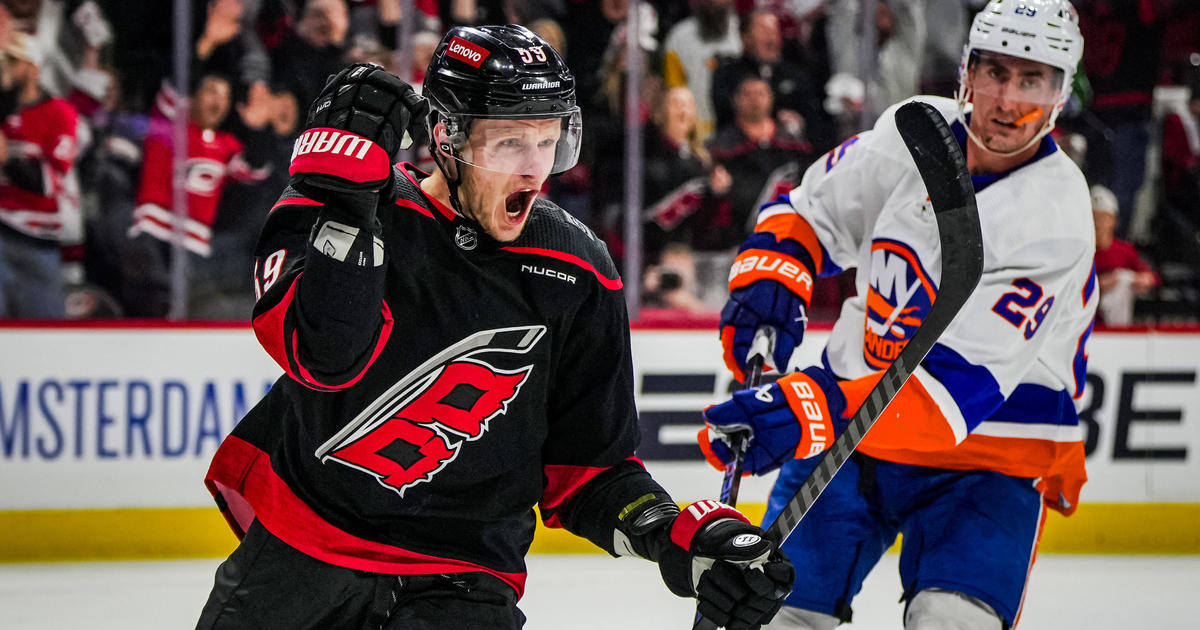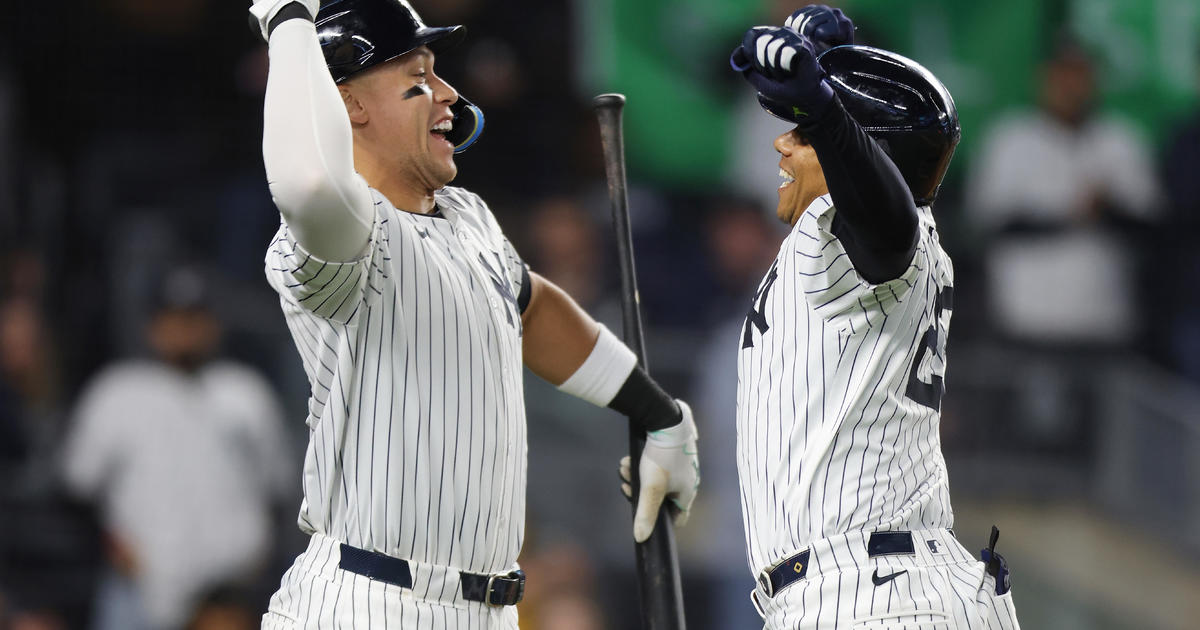Friedman: GM Snow Deserves Big Blame For Unnecessary Vanek Fiasco
By Daniel Friedman
» More Columns
The New York Islanders have officially lost the Thomas Vanek trade.
For weeks, the hockey world was kept on edge about the 30-year-old winger's fate. He has made his decision, and the aftershocks are being felt all across Long Island.
Newsday reported Monday morning that Vanek "turned down a substantial contract offer," and that "the offer is believed to be in the same range as Vanek's current seven-year, $50 million deal."
TSN's Darren Dreger spoke to Islanders' GM Garth Snow at Yankee Stadium on Wednesday and, on Toronto's TSN 1050 AM, said that "the Islanders believe they have the wherewithal to pay Thomas Vanek the type of money, if not more, that he would get as an unrestricted free agent, and that includes term."
Looking at the numbers on what was rumored to be the Isles' pitch, it does show a willingness to spend, but it's clearly not an offer Vanek couldn't refuse, nor is it "the type of money, if not more," that he would command on the open market.
Naturally, there's one question on everyone's mind right now: who is to blame for this debacle?
Perhaps you'll cite team owner Charles Wang for not throwing more money at Vanek. That's a somewhat valid beef, but at the same time, most people who feel that Wang refuses to spend would never have expected or even considered that he'd ever offer an impending free agent a seven-year, $50 million contract, as was reported in Vanek's case.
Maybe you'll fault the players for playing abysmal hockey this season. It's certainly possible that had an impact on Vanek's decision, at least to some extent.
But the real onus here is on Snow, who knew full well what he was getting himself into with this trade and still went ahead with it.
There was a time when Snow was cognizant of the fact that the team needed to be built a certain way because of the Isles' situational limitations, and he thrived. I don't know if it was the hype or momentum from last season's playoff run, but something in this case caused him to deviate from his trademark savvy approach.
Snow decided that the Islanders were suddenly going to be this big time player, that they're going to be able to convince anyone to sign -- despite accomplishing very little as far as actual on-ice success was concerned -- when the reality is, they simply aren't in that stratosphere right now.
He had to know that, even if Wang was willing to take a big step forward and make a sizable financial commitment to Vanek, it was never going to be enough money to keep him aboard irrespective of team performance, location, or other factors that might've otherwise played into his decision.
Lest we forget that the Islanders already had a goal scorer riding shotgun with John Tavares, one who already wanted to stay with the organization.
It might not have been as sexy to have Matt Moulson as it was to have Vanek, but it worked just fine. Not only did it work just fine; the man scored 30-plus goals every year and had very good chemistry with Tavares.
Back in October, I said that the Vanek trade was an unnecessary, one, because the Isles were seventh in the NHL in goals-for at the time. People would tell me that Vanek's better than Moulson, and I never suggested otherwise. Instead, I posed the following question: Would you rather a few months of Vanek or five years of Moulson?
The risk far outweighed the reward. The odds of retaining Vanek were slim to begin with. It's worth noting that the Isles did get themselves into the mix for his services -- an impressive feat in its own right and something that would never have happened if they hadn't traded for him -- but, in the end, that's all they did.
Another suggestion that's been made is that Moulson was never part of the Islanders' future plans. If that's true (and it appears to be), there is every reason to ask why. It's not like there's a viable "Plan B," barring a trade involving assets Snow would be unlikely to part with.
Even if Moulson wasn't the Isles' preferred choice, even if he wasn't the winger Tavares "deserved" (which I'll never understand) that Vanek supposedly was, now they'll be left with neither player. Was the trade really worth it?
How about the fact that the team had far more pressing needs? Snow couldn't have instead packaged that first round pick in a deal for a defenseman?
Sure, it's nice to have a star like Vanek. Maybe the prospect of seeing him don an Islander uniform masked all logic and brushed aside any thoughts of long-term ramifications of the trade. The bottom line is, this was a terrible and costly gamble; then and now.
During the trade announcement press conference, Snow stood up at the podium and exclaimed that the Islanders "are a better team today than we were yesterday." He said they "haven't been good enough," that their "expectation is to be higher than that."
The fact of the matter is, the Islanders are not a better team today than they were yesterday. In fact, they're a worse team than they were yesterday.
While the top line got better, the rest of the team did not. The Isles, who were a .500 hockey club when Vanek arrived, dropped to well below that mark. They're not mathematically eliminated from playoff contention yet, but that's a mere formality and inevitable at this point.
Snow's inability to address the team's glaring defensive issues is the biggest reason why New York won't return to the playoffs this season. That error, combined with his failed attempt to lure Vanek away from free agency, makes 2013-14 a huge blemish on Snow's record -- one that has otherwise been pretty strong.
He has not been that same smart GM who's found quality talent in unexpected places and has always made shrewd, calculated moves. Sometimes, you have to be a risk-taker, but this was not one of those times. The Islanders were playing a losing game, and Snow is responsible for putting quarters into the machine. He needs to dig deep and find a way out of this mess. He has enough assets and draft picks to engineer some sort of solution, but he might have to give up a bit more than he's comfortable with.
If Snow truly feels that the organization is prepared to dish out big contracts, then he should be competitive in free agency. As far as his in-season moves are concerned, he should go back to what's worked in recent years.
This team has a lot going for it, in terms of young talent coming through the pipeline. But in order to really turn the corner, it needs an infusion of talent from outside the organization. Based on what teams have given up for rental players over the last several years, that outside help is unlikely to come from a Vanek trade. You're looking at a package consisting of one or two half-decent NHL players (though that's not always the case), a mid-level prospect and a first-round draft pick.
Snow's tenure will not be defined by his decision to draft Josh Bailey and Nino Niederreiter, the Alexei Yashin and Rick DiPietro buyouts or the Ryan Smyth trade. It'll be defined by his actions over the next eight months; how he responds to this situation and what moves he makes (or doesn't make). Should he fail there, both he and the Islander team he's built from the ground up will be in serious trouble.
Follow Daniel Friedman on Twitter @DFriedmanOnNYI
You May Also Be Interested In These Stories



